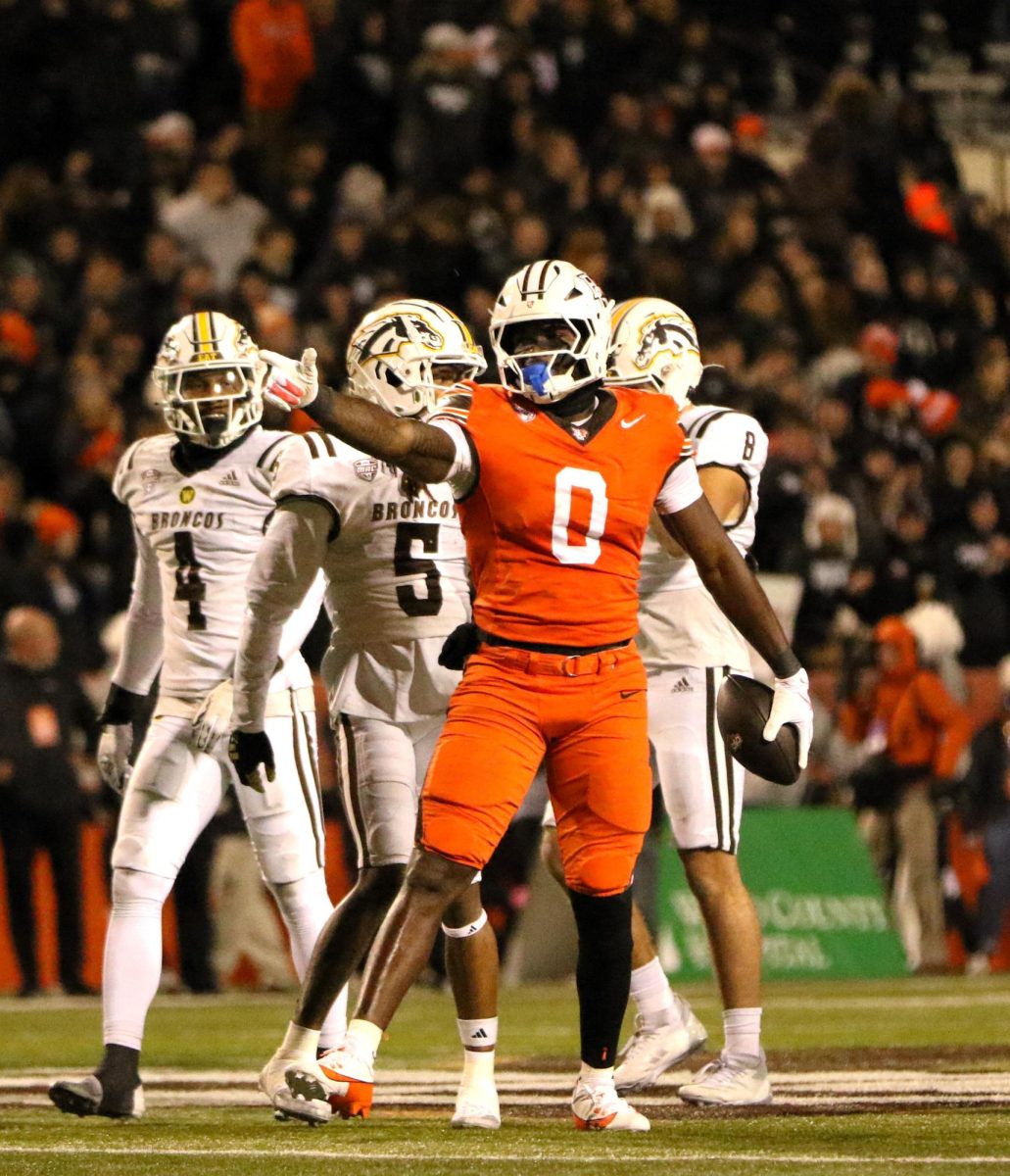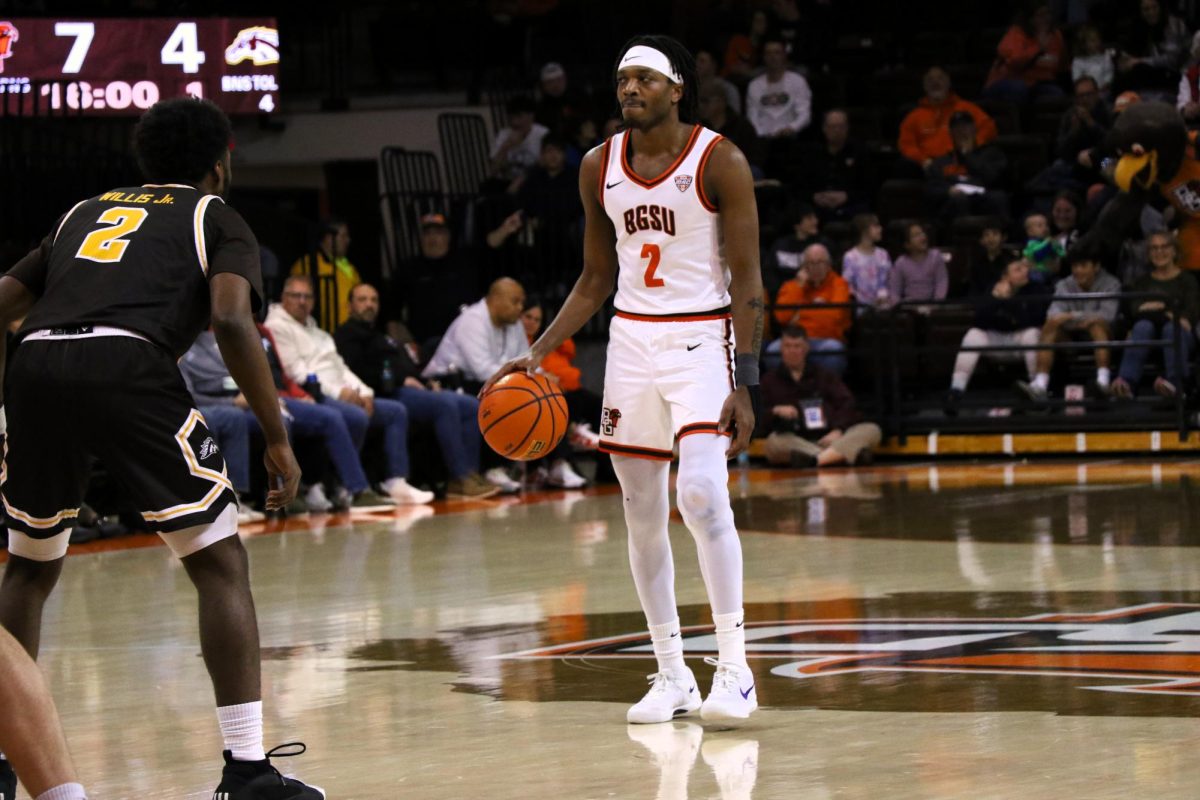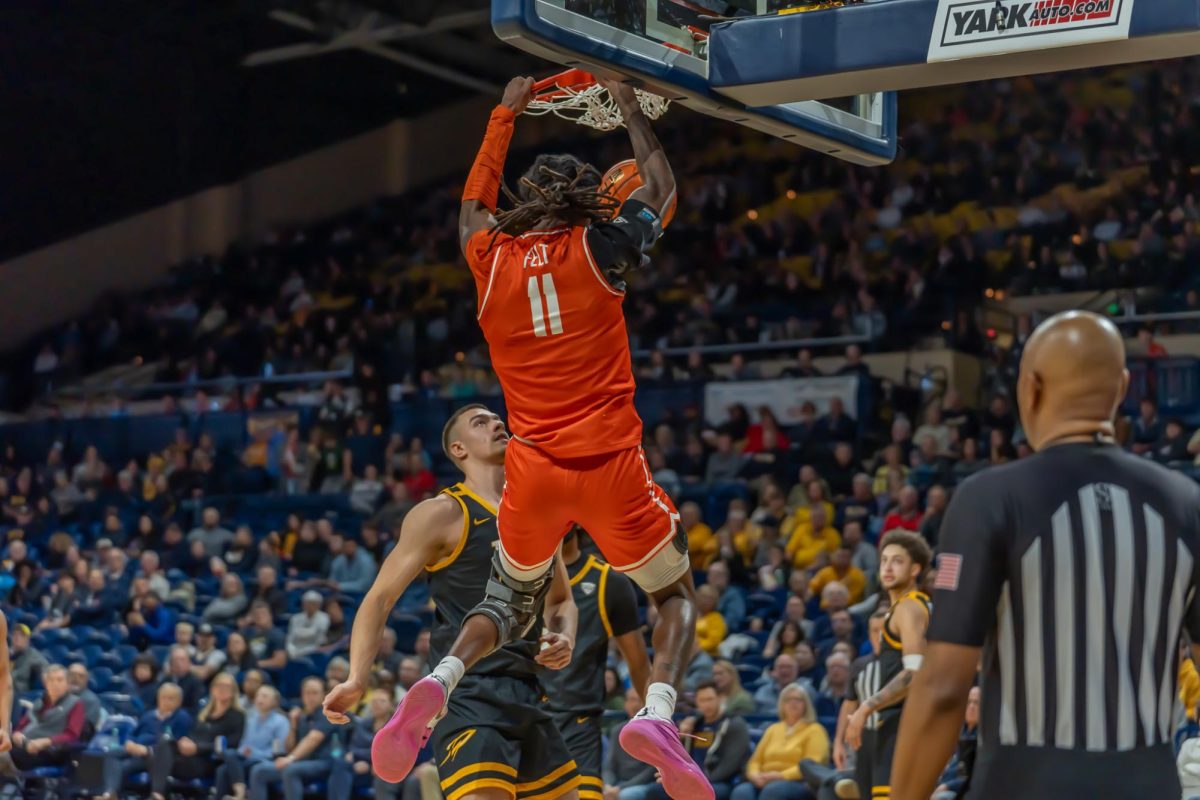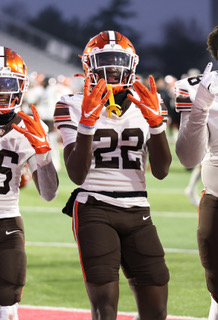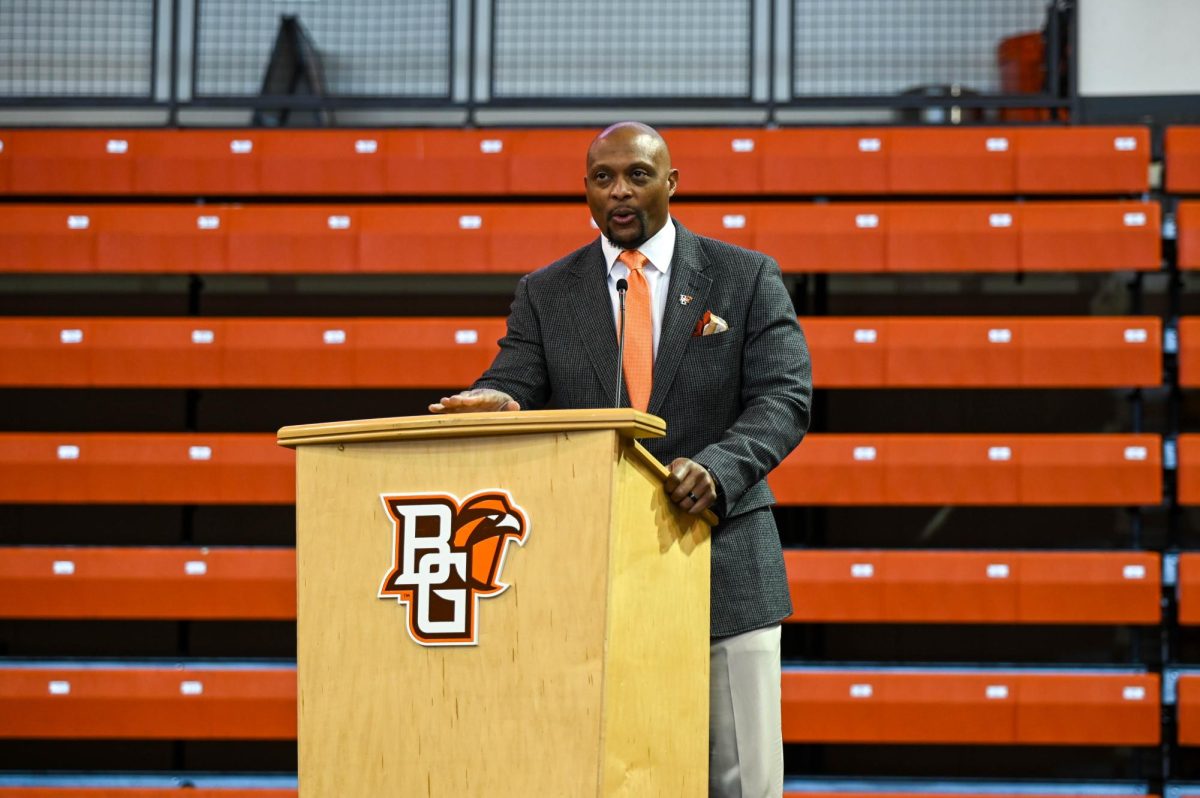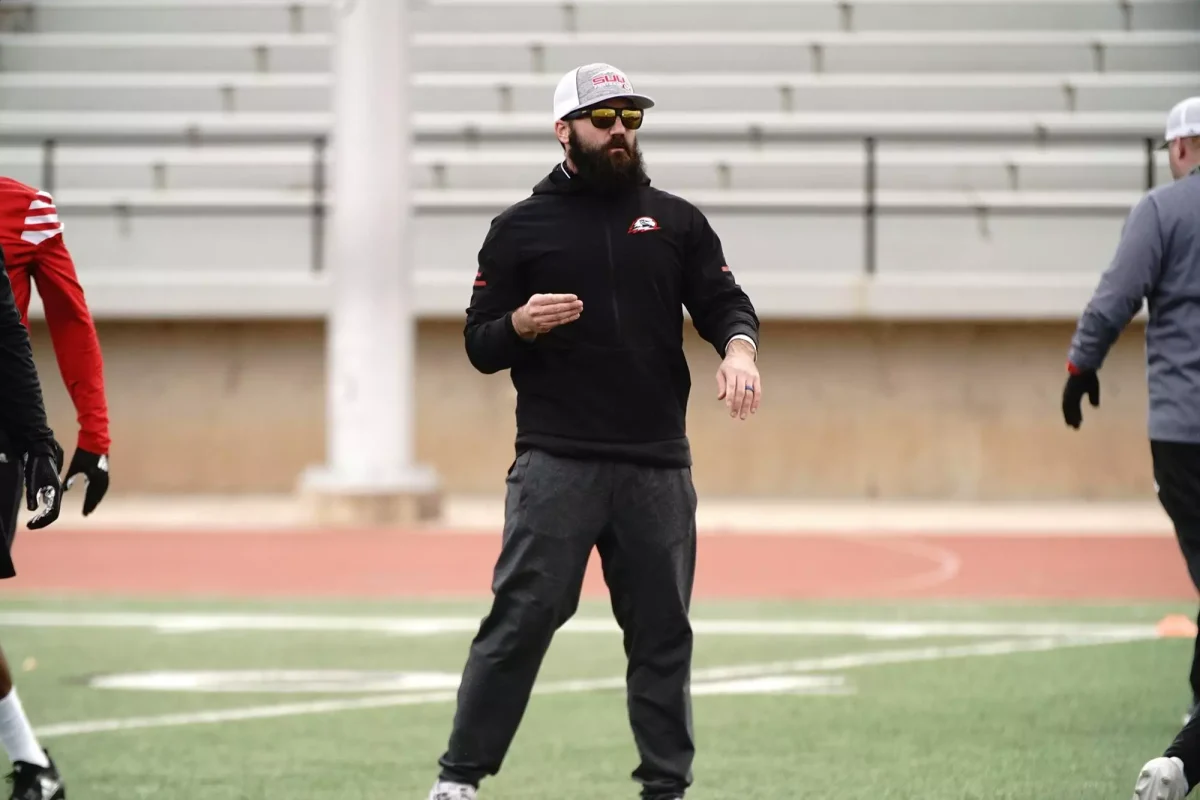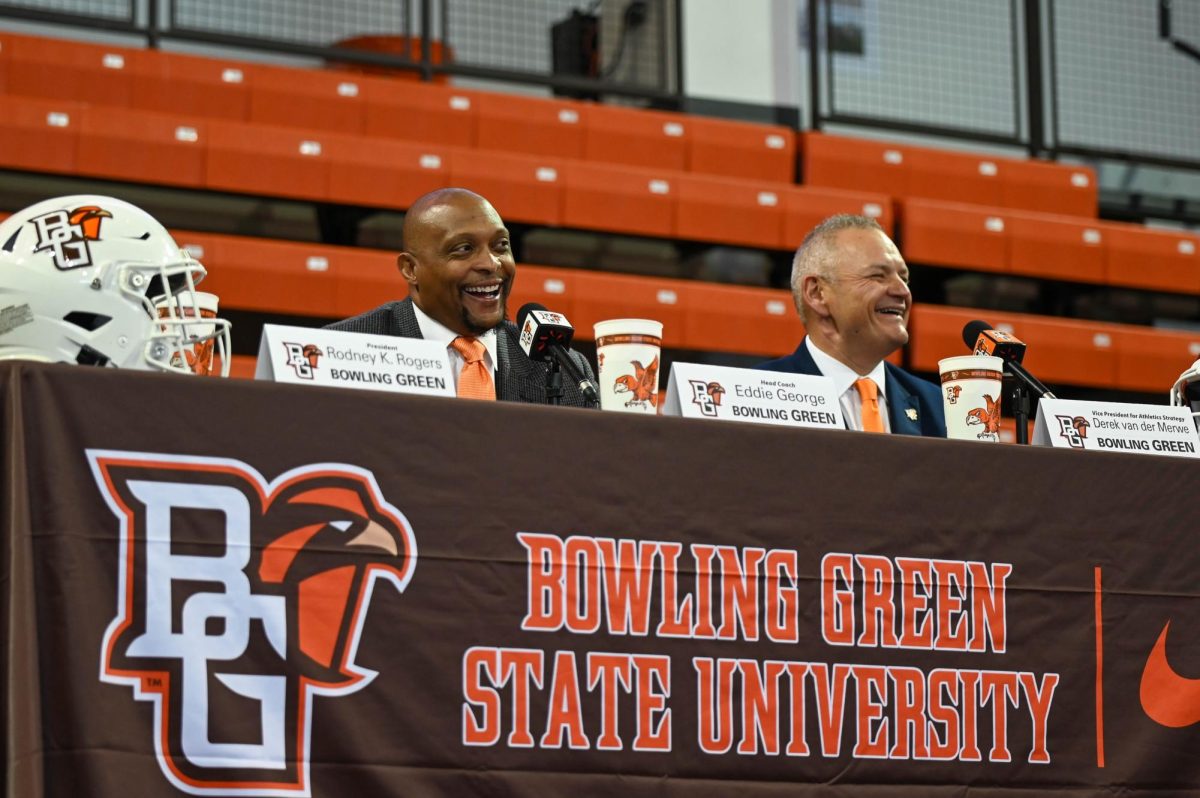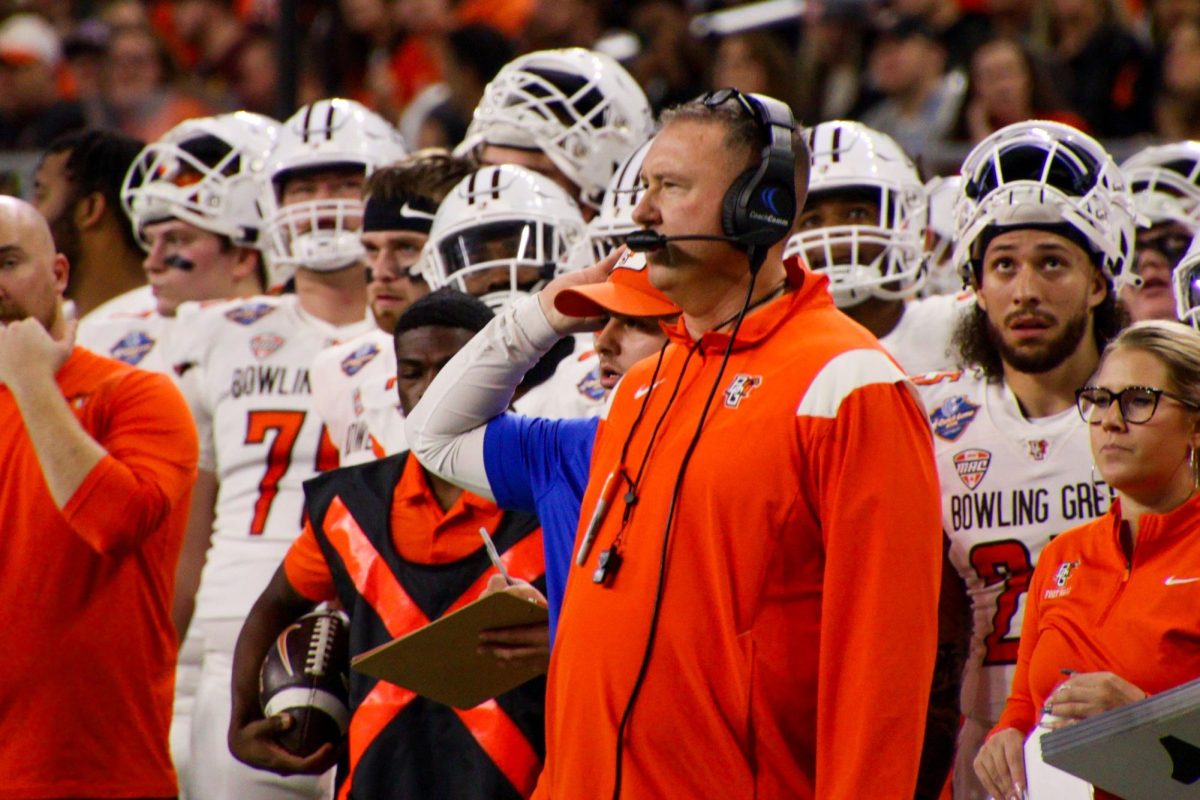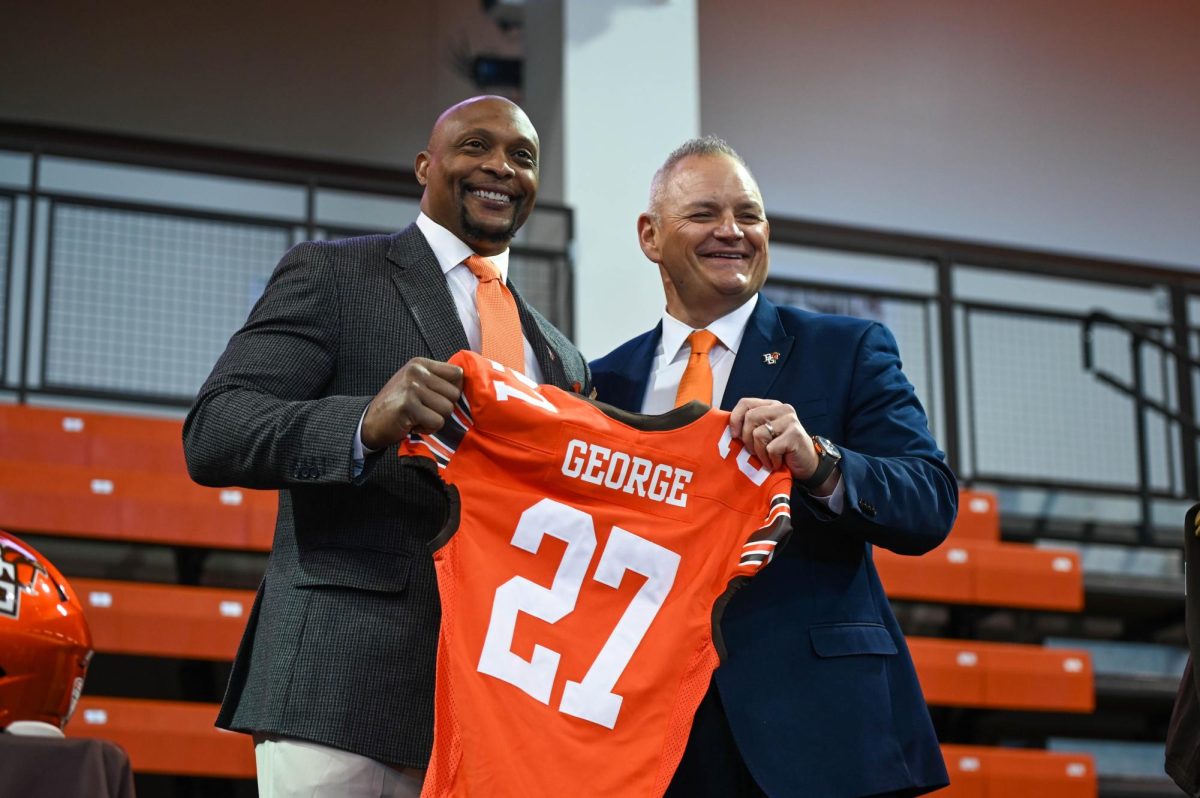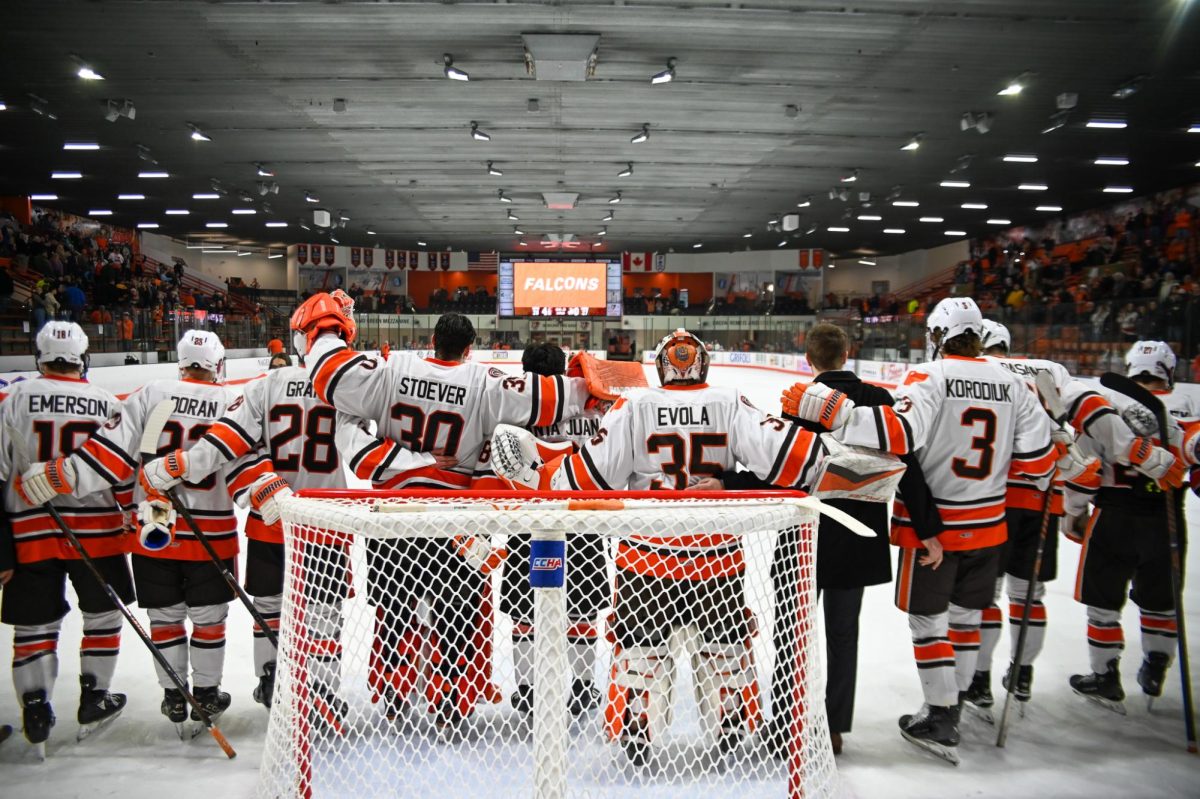It was announced on Dec. 12 during the Home Depot College Football Awards Show that Penn State tight end Tyler Warren was the 2024 recipient of the John Mackey Award, given to the “most outstanding tight end in the country.”
In my best Kanye West impression, “Tyler, I’m really happy for you. I’m going to let you finish, but Harold Fannin Jr. had one of the greatest tight end seasons of all time.”
In terms of stats…
Warren had a good season, please do not get me wrong. 88 receptions for 1,062 yards and six touchdowns is nothing to scoff at. He added four more touchdowns on the ground and threw for one as well.
That’s awesome.
Entering the 68 Ventures Bowl on Dec. 26, Harold Fannin Jr. is just 11 yards away from breaking the single-season receiving record for a tight end. All-time. Across every level of college football, FBS to Division III.
100 catches. 1,342 yards. Nine receiving touchdowns. He averaged a full yard per reception more than Warren did.
He finished the regular season second in receiving in the country.
He was a Biletnikoff semifinalist.
He led all college football tight ends, which includes Tyler Warren, in 20 categories, including (and not limited to): receptions (100), receiving yards (1,342), touchdowns (9), yards after catch (750), broken tackles (31), first downs (64), receptions of 10+ yards (56), receptions of 20+ yards (21), receptions of 30+ yards (11), receptions of 40+ yards (4), receptions of 50+ yards (3), receptions of 60+ yards (3), all-purpose yards (1,399), receiving yards per game (111.8), receptions per game (8.3), all-purpose yards per game (116.6), games with 100+ receiving yards (7) and games with 100+ receiving yards against Associated Press Top-25 teams (2).
He had not one, not two, not three, not even four, but seven games of 100+ receiving yards. Warren had just four such games. Additionally, Warren had six games of being held to 50 yards or less to Fannin’s two.
Counting only the regular season, Fannin played against five of the top-35 pass defenses in the country: Penn State (8), Northern Illinois (15), Miami OH (16), Texas A&M (29), and Toledo (32), while Warren played against just three: Ohio State (1), Minnesota (11), and Bowling Green (22).
In those games, Warren had 20 catches for 295 yards and no touchdowns, while Fannin had 37 catches for 428 yards and four touchdowns. If you isolate Fannin’s two games against ranked opponents, he had 282 yards on 19 catches and two scores.
He was the first tight end in the over 100-year history of college football to win his conference’s player of the year award.
He broke just about every tight end record in Bowling Green’s record book.
He won the Mackey Award’s weekly award three times, more than anyone else.
He was named a Walter Camp first-team All-American, one of five lists officially recognized by the NCAA. Bowling Green’s first ever.
Warren filled the stat sheet, but…
Yes, Tyler Warren had four rushing touchdowns. Yes, he threw for one.
Those stats are great, yet meaningless to the position. They’re more of a testament to the creativity of the offense, not to his ability as a tight end.
According to Pro Football Focus, Warren was the second-best tight end in the sport behind Fannin.
Fannin had a player grade of 95.6 to Warren’s 91.0. He had a better receiving grade than Warren (95.9 to 93.2). He had a better run-blocking grade than Warren (74.5 to 52.3) while being two inches and 31 pounds smaller than Warren. He even had a better grade as a passer despite only completing one pass for nine yards (69.0 to 58.3).
Every statistic and metric points toward Harold Fannin Jr. being the best tight end in all of college football for 2024.
What does this mean for the Group of Five?
The argument that a player can have one of the best seasons of all time at their position and it be invalidated because of the competition is silly.
Boise State running back Ashton Jeanty is a Heisman finalist. He won the Doak Walker Award, given to the nation’s best running back, as well as the Maxwell Award, which is given to the most outstanding player in the country.
He had an outstanding season statistically, rushing for 2,947 yards and 29 touchdowns on 344 carries.
Using the same logic used for Fannin, all of this should be invalidated because he played weaker competition than Iowa’s Kaleb Johnson or North Carolina’s Omarion Hampton.
The snub of Fannin for the Mackey as well as the snub of San Jose State’s Nick Nash for the Biletnikoff Award sets a dangerous precedent from all the major award voters that they clearly don’t value the talent in the Group of Five as highly as those from the Power Four conferences.
Nash was just the fourth player in the history of college football to record a Triple Crown, leading the nation in receptions (104), receiving yards (1,382), and touchdowns (16).
If Fannin can’t win the Mackey Award with the season he had, what shot does anyone else from the Mid-American Conference or any other G5 conference have?


